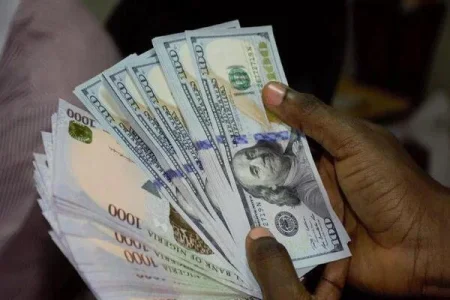
Amidst ongoing economic uncertainties, the Nigerian Naira witnessed another downturn on Tuesday, depreciating at the official market to trade at N1,300.15 against the US dollar. Data sourced from the official trading platform of the FMDQ Exchange, responsible for overseeing the Nigerian Autonomous Foreign Exchange Market (NAFEM), revealed a significant loss of N65.66 in comparison to the previous trading date.
The latest depreciation, marking a 5.3% decline from Monday's rate of N1,234.49 to a dollar, underscores the persistent challenges facing Nigeria's currency. Analysts attribute the Naira's continued slide to a combination of domestic and external factors, including dwindling foreign reserves, sluggish economic growth, and global market volatilities.
Economists warn that the weakening Naira could exacerbate inflationary pressures and undermine purchasing power for ordinary Nigerians. As the country grapples with currency instability, policymakers face mounting pressure to implement measures aimed at stabilizing the exchange rate and restoring investor confidence.
The depreciating Naira has far-reaching implications for Nigeria's economy, affecting sectors ranging from import-dependent industries to foreign investors eyeing the country's market. Furthermore, the currency's volatility raises concerns about the government's ability to manage fiscal challenges and promote sustainable economic growth.




